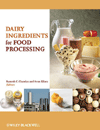Company: PURIS
Website: purisfoods.com
Ingredient Snapshot: It seems you can’t watch TV or browse the internet without seeing someone recommend eating a plant-based diet. Not only are there health benefits, but the right plant-based ingredients also satisfy consumers’ desire to help protect the environment. PURIS invites you to stop by SupplySide West booth FiNA #2515 to learn how to make the sustainable choice also the easy choice. Even better: you will discover what is beyond pea protein.
Consumers’ expectations continue to increase for brands. As the buying power shifts from baby boomers to millennials to even Gen Z, food makers must have a sustainability story behind their brands. A study commissioned by Neilson determined, “Sustainable purchasers are expected to spend over $150 billion by 2021.” Even more, Neilson reported that millennials are twice as likely (75 percent vs. 34 percent) than baby boomers to say they are definitely or probably changing their habits to reduce their impact on the environment. They’re also willing to pay more for products that contain environmentally friendly or sustainable ingredients (90 percent vs. 61 percent), organic / natural ingredients (86 percent vs. 59 percent) or products that have social responsibility claims (80 percent vs. 48 percent).
Major brands need to take note that millennials are also more likely than baby boomers (53 percent vs. 34 percent) to say they’d be willing to forgo a brand in order to buy products that are environmentally friendly. They also find it much easier to find environmentally friendly products in the stores where they shop (74 percent vs. 46 percent). This creates both opportunities and risks for manufacturers.
It is no longer only a “corporate responsibility” to have sustainability goals, brands must empower an authentic story of trust, transition and commitment in order to build connections with their consumers.
“We all have margin pressure to make our businesses work. But the demands for sustainability and the wellbeing of the earth have never been greater,” observes PURIS President Tyler Lorenzen.
How can you deliver on the needs of consumers today, while meeting the requirements of your stakeholders? You must build sustainability into your bottom line and there isn’t a better place to start than peas.
Every bushel yield of corn requires an equivalent pound of nitrogen to achieve that yield. Corn may yield up to 200 bushels per acre but nearly 200 pounds of nitrogen. Agricultural use of synthetic nitrogen is thought to be partially responsible for green algae growing on our lakes and for so-called dead zones in our waterways and oceans. “Peas fix nitrogen by taking it from the air and converting it to usable fertilizer,” Lorenzen explains. “Farmers growing peas can add up to 70 pounds of nitrogen per acre of production. Peas can reduce the amount of nitrogen needed on their farms. With the reduction in applied nitrogen, fertilizer runoff can be reduced, keeping our waterways and eventually our lakes and oceans cleaner.”
Pea protein is all the crazy but there are other parts of the pea that matter too. While producing pea protein, one of the co-products that can create value in many applications is non-GMO and organic pea starch. “The cool part about pea starch is that it is grown in the USA and less expensive than tapioca starch which also requires importation from Asia or Afric.” stated Jon Getzinger, PURIS chief marketing officer. You can achieve all the same claims as tapioca starch: non-GMO, organic, non-corn but also make sustainability claims due to the source of origin and the generative relationship peas have with the soil.
Organic pea starch is used to make vegan, gelatin-free gummies that provide a clean label, highly functional alternative to animal derived gummies. PURIS pea starch can pivot your product from traditional gelatin (typically derived from animal by-products) or corn-based to non-GMO, organic, non-animal and USA-sourced gummies.
Derived from US-grown and sourced peas, PURIS non-GMO pea starch provides clean taste to let your flavors shine through while giving your product the texture a great gummy or fruit snack should have. “The unique part about a PURIS vegan gummy is it is just like the gummy you are used to but made without any animal by-products. Moreover, the organic version is able to hold higher dosage of active ingredients due to the structure of the starch,” advises Getzinger
The low-carb trend is popular for fitness enthusiasts today. It is widely known that carbohydrates break down into glucose and aid in recovery. A more recent trend in the low-carb movement is “targeted carbs.” Targeted carbs are specifically focused on athletes consuming carbohydrates around the time of training or high endurance. To make this easy and keep it clean, PURIS developed a low-glycemic index recovery product called PURIS Pea Starch RTE. This pea starch enables athletes to get the carbs their muscles need for recovery without compromising on taste or convenience while being non-GMO or organic. It has a great, neutral flavor profile that works well on its own or with light sweetening or flavoring,” says Getzinger.
“We also can’t forget about pea fiber. PURIS Whole Pea crisps made from our whole, non-GMO pea flour, provide the same “whole” nutrition (protein, carbohydrate, fiber). PURIS Whole pea crisps are a one-ingredient powerhouse, helping hit nutritional goals with 20% protein and 15% fiber. PURIS pea crisps provide a great base for bars and can add crunch and interest in other applications including oatmeal mixes and nut butter,” says Getzinger.









